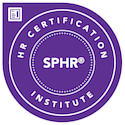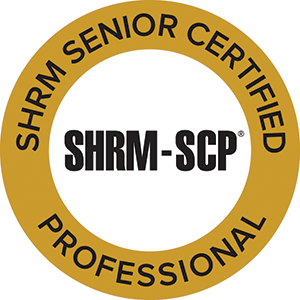In my work with leaders over the years, I’ve found that the most effective leaders are those who embrace their role as a coach – to their teams and to their individual employees. These are leaders who listen, who develop and empower their people, and who earn respect through their actions and how they treat others.
Developing your skills as a coach is one of the best ways to grow as a leader.
A great reference tool for this is the book, Trillion Dollar Coach, which profiles Bill Campbell, a football coach turned C-Suite executive who created a third career coaching some of the top CEOs in Silicon Valley. The book is written by Eric Schmidt, Jonathan Rosenberg and Alan Eagle, Google executives who witnessed firsthand “Coach Bill’s” ability to “build trust, foster personal growth, and inspire courage.” The authors interviewed more than 80 people to create a compendium of Bill Campbell stories, insight and wisdom.
Here are 5 key takeaways from Coach Bill’s principles that the authors shared.
- Your title makes you a manager, your people make you a leader. Build relationships with your team – show them that you care about them as people. Get to know them. Ask about their lives outside of work, their families. Be generous with your time, connections and other resources.
- Respect must be accrued, not demanded. The command and control style of leadership doesn’t work anymore. Treat your employees with respect. Listen to them. Be an evangelist for courage by believing in people more than they believe in themselves. Don’t tell them what to do – offer stories and help guide them to the best decisions for them.
- Honesty is key. Practice complete candor. Pair negative feedback with caring. And give feedback as soon as possible. If it’s negative feedback, deliver it privately. Feedback is necessary for growth, and your responsibility as a leader and coach is to help your people grow.
- Pick the right players. Look for those who have the ability to learn fast and are willing to work hard. Choose people with integrity, grit, empathy and a team-first attitude.
- Create a decision-making process that ensures all perspectives and points of view are heard. Look for the best idea, not necessarily consensus. If necessary, break a tie and make the decision.
Stay tuned for future blogs when we’ll talk about more ways you can grow as a leader.



 In my work with leaders to help them build on strengths and develop in other areas, I often recommend books that I think are particularly insightful. A recent one I’ve been recommending is Triggers: Creating Behavior That Lasts – Becoming the Person You Want To Be, by renowned executive educator and coach Marshall Goldsmith, and Mark Reiter.
In my work with leaders to help them build on strengths and develop in other areas, I often recommend books that I think are particularly insightful. A recent one I’ve been recommending is Triggers: Creating Behavior That Lasts – Becoming the Person You Want To Be, by renowned executive educator and coach Marshall Goldsmith, and Mark Reiter. need to listen more than they talk.
need to listen more than they talk. We hear a lot about leaders who are great speakers. Who can inspire through their words, capture the attention of a large audience, or engage others through a compelling story. But another leadership skill that is just as important – if not more so – is the ability to listen. Leaders who demonstrate to their employees and their teams that they listen – really listen – build trust, promote engagement, and inspire loyalty.
We hear a lot about leaders who are great speakers. Who can inspire through their words, capture the attention of a large audience, or engage others through a compelling story. But another leadership skill that is just as important – if not more so – is the ability to listen. Leaders who demonstrate to their employees and their teams that they listen – really listen – build trust, promote engagement, and inspire loyalty. As I discussed in my last blog, working with an executive coach can help you prepare for a transition, work through a specific issue, and/or overcome a derailing behavior. Coaching can also help you develop in place to become the leader you want (and need) to be. But where do you begin? What are the essential skills needed to be an effective leader today?
As I discussed in my last blog, working with an executive coach can help you prepare for a transition, work through a specific issue, and/or overcome a derailing behavior. Coaching can also help you develop in place to become the leader you want (and need) to be. But where do you begin? What are the essential skills needed to be an effective leader today? leaders attribute at least part of their success to having worked with an effective executive coach.
leaders attribute at least part of their success to having worked with an effective executive coach. I’ve got some exciting news about what’s ahead for Connect to HR – and about some changes you’ll see in the coming months.
I’ve got some exciting news about what’s ahead for Connect to HR – and about some changes you’ll see in the coming months. Management expert Ken Blanchard once said, “Feedback is the breakfast of champions.” Yet for many of us feedback is a hard meal to swallow. The minute someone suggests giving us feedback, our defenses go up and our hearing fails. Both reactions are limiting to our growth and development. Especially as a leader.
Management expert Ken Blanchard once said, “Feedback is the breakfast of champions.” Yet for many of us feedback is a hard meal to swallow. The minute someone suggests giving us feedback, our defenses go up and our hearing fails. Both reactions are limiting to our growth and development. Especially as a leader. For an organization to succeed, it needs quality products or services, engaged employees, and effective leaders – at every level.
For an organization to succeed, it needs quality products or services, engaged employees, and effective leaders – at every level.
